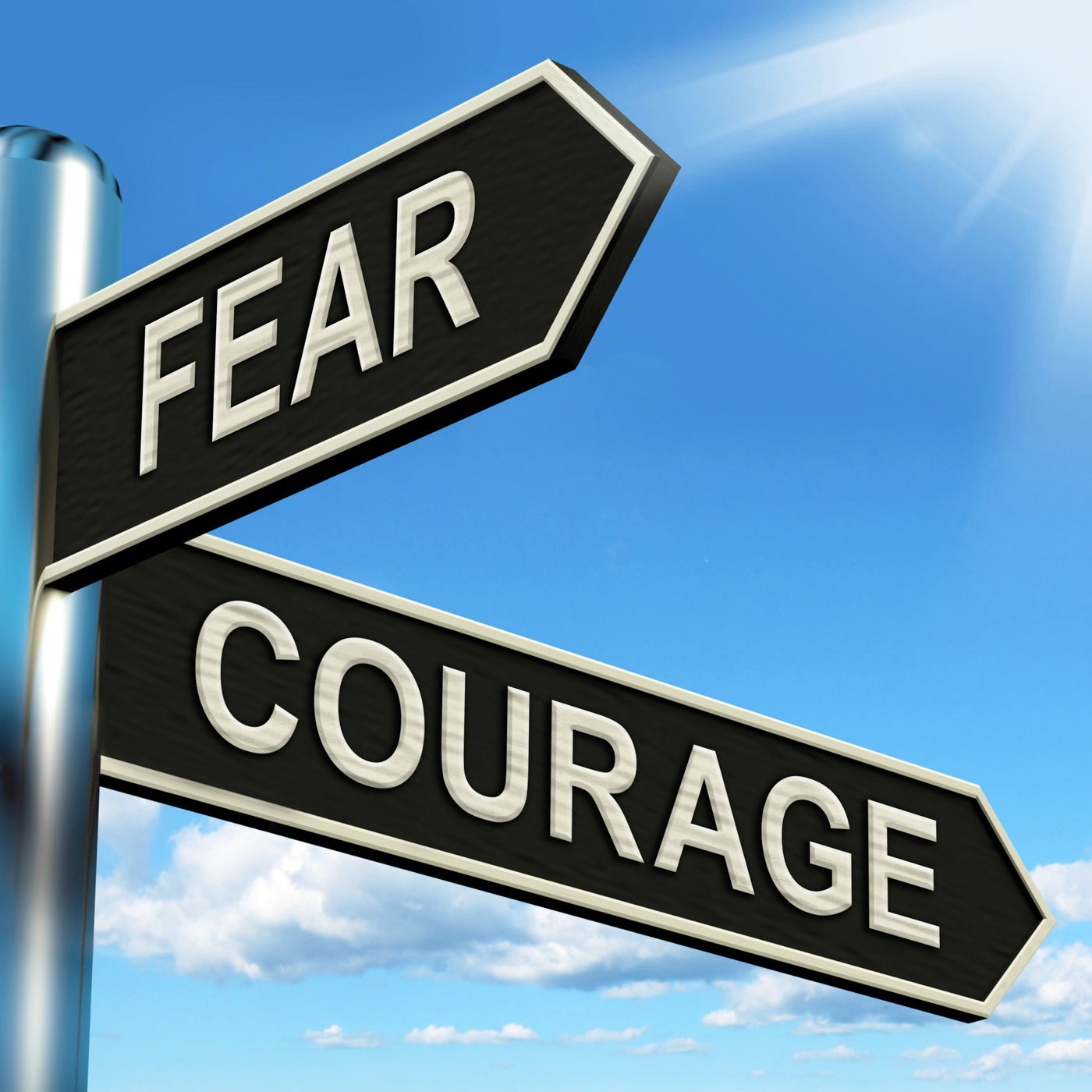What I adore so much when talking about the “L” word, is that everyone’s version of it is vastly unique.
To understand love better, or to know what we’re “supposed” to be on the lookout for when we’re actively seeking out a partner to fall in love with, I think most of us try to narrowly categorize what love is and what it feels like. Truth is, though, our experiences behind each and every relationship in our lives (romantic, social, and familial) are just too different. The love I feel for my Mom might be similar but it’s not the same kind of love I feel for my best friend, and that’s because I share different experiences with each person. I believe this is the exact reason love is such a hard phenomenon to describe.
A few weeks ago I wrote an article about not settling for the bare minimum (in so many words, by “bare minimum” I meant “half-assed versions of love”). Early in to that article I vaguely mentioned these contrasting versions of love; however, I also mentioned that the kind I didn’t know personally was the intimate and committed kind that we feel for our partners……….and, well…I want to take that back now.
Maybe it’s not lOvE… I already know some would reckon that it’s too early to call it that, but one thing I know for sure is that it’s definitely more than just a “liking.” Perhaps the next stage is “like-like” or super like, but even if those terms have potential to be correct, what I’m feeling is way stronger than that. The feeling I’m experiencing is one of appreciation, adoration, admiration, and gratitude. I feel safe, I feel a new place in my heart opening up and it feels like home; I’m in a trance, and I have no intentions or desires to get out.
Could that be the “L” word? And if that’s the “L” word, why are we so intimidated by it? Why do we tread around it with such caution? Is it really all that scary?
If you can’t tell, I’ve naturally had some time to ponder these questions…
I’ve heard that love is too strong of a word and it shouldn’t be used lightly but, personally, I use the word often with friends, family, and things or activities I really enjoy….except when it comes to intimate relationships. I, too, have seemingly been programmed to adopt the oh-so-common belief that love is scary, intimidating, and should be stated only if we’re sure it’ll be reciprocated (otherwise it’s embarrassing). I, too, have thought that saying “I love you” is like walking on egg shells. I get it.
Plus, with the wide-ranging amount of definitions behind the “L” word (AKA: personal experiences, as well as the ones we’ve witnessed), it’s understandable why such negative misconceptions are easier to latch onto. Love oftentimes get a misconstrued reputation because we place it at the face of other painful experiences, and that conditions us to think that Love is synonymous with disloyalty, broken promises, false hope, and maltreatment. We know those aren’t acts of love, but we still fear the possibility so showing emotions, telling others how we feel, going out of our way to go the extra mile, are just a few subtle expressions of love that have taken a hit. And it shows in how offset we are by the word.
All I know is that we have only one life to live, and I don’t want to spend mine fearing the very thing that adds so much meaning to it; the thing that is so breathtakingly valuable to my joy. I hope you don’t either, so here are some reminders to keep in mind about the “L” word…
- It is kind, it is peaceful, and it universally binds us together
Although Love is not culturally universal (because of the arbitrary ways it’s expressed and internalized); our capacity to Love is. When we show up for others, when we give our best selves to a relationship, project, or another, and when we practice self-compassion, we are becoming one with ourselves and one with the other people in our lives.
It might seem like Love is synonymous with emotions like anger, jealousy, or sadness (because sometimes we think that these emotions are brought forth out of love), but we must let go of this notion. Love can come after experiencing anger, jealousy, or sadness, but these emotion are not synonymous with Love.
For example, I get angry when my best friend looks down on herself. My anger might seem like it’s coming from a place of Love, but my anger is not Love. Me reminding her of all her greatest qualities, how worthy she is, and how much I appreciate her as my best friend is love.
The more we come to understand love in this context, the better I think we can be at both expressing it and receiving it. Love will always be kind, peacefully, and bring us together as long as we remember what real love is.
- just a small drop has the capacity to develop, expand, rise, and multiply
It’s no question that love is contagious. When we witness someone falling in love, what do we see? They’re giddy, they smile more, they put forth more effort into their pursuits and goals, they walk with their head held a little higher, their chest a little broader, and they’re more apt to say yes to new opportunities.
Think about it this way: when a candle shares it’s light, does it dim? Nope, it does not; the light just keeps spreading from one candle to another. The same goes for how we experience and express love — it can develop, it can expand, it can rise, and it can multiply. Never underestimate its power.
- it catalyzes our potential to live life to its absolute fullest — which is especially true when we experience pain around it
When we can appreciate Love for all its grandeur — the highs and the lows, and everything in between — we can give our all to others. And even if it’s not always reciprocated, we can trust that we were able to change someone’s perspective, even if just in the slightest.
I have dated plenty and loved none, and although I was much more scared of getting hurt before than I am now, showing kindness, care, and consideration for all those who didn’t reciprocate it the same way turned out to help my self-compassion, -confidence, and -esteem more than it hurt it. Here’s why:
1) I had to learn how to fill the void in my heart through myself and the already established (and cherished) relationships I had. What took me so long to realize was that just because the bartender wasn’t there, didn’t mean I was drinking (or living my life) from an empty glass. And,
2) I choose to believe that whether I left a mark in the heart of those I dated before, or if I was just someone they knew in passing, I’m being the change I wish to see in the world. Trying to show more care, giving chances to new people and experiences, and offering the benefit of the doubt are examples that I believe the world needs to see and normalize more. Those acts do rub off on someone along the way, and just because we don’t see it happening behind the scenes doesn’t mean we should stop. That alone is enough.
So even when showing less intense versions of love (acts of kindness, consideration, and empathy) has brought some heart-ache and pain, I know that it has taught me how to do better, be better, and love harder. And now that I’m in a relationship that actually does feel right, real, reciprocated, and undeniably…amazing?…I am confident in my abilities to give my all to it and the new journey he and I are embarking on. Call me cheesy, but trusting in the power of Love, no matter what happens, is enough for me to know that this adventure is going to be worth everything I put into it.
- it has the power to heal us from the inside out
This is a two way streak because we have to let Love in (from others and ourselves) in order to experience it’s healing abilities. Practicing self-love has been the biggest game changer in how I view myself, my body, and my potential; however, it has also made it so much easier (and significantly sweeter) to let love in when I’m experiencing it through the acts and behaviors from others.
If I can’t believe myself when I say that I’m worthy of feeling sexy, receiving kindness, and being fully accepted for who I am right now, then how I can believe (and appreciate) my boyfriend, for example, when he tells me that I’m sexy, when he opens his heart to me and proves how accepted I am, and that I deserve to be treated with all the kindness he covers me with daily?!
When we love ourselves, we’re less resistant to letting in love from others; which only strengthens our hearts, encourages us to express love more often, and opens us up to receiving, accepting, and appreciating the love others want to give us.
Perhaps we have nothing to be afraid of when using the “L” word. Sure, it’s powerful, but it’s gentle, too. While I still might wait to use it, I can most confidently say that I finally know, in my heart, what all the different versions of Love feel like.
And damn does this version feel good.
XOXO,
Sab








